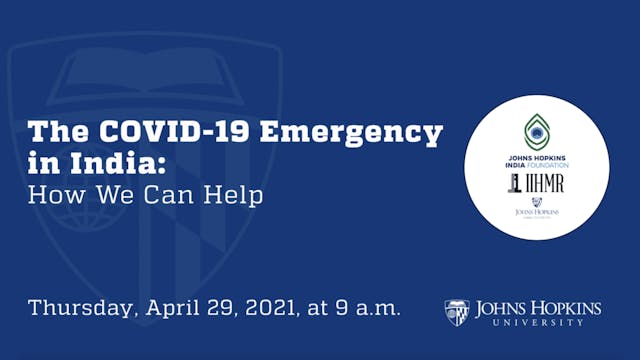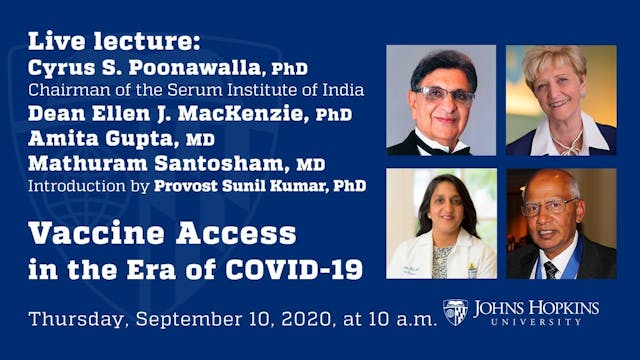Session 1: Segregation and Civil Rights in the American Health System
Government, Policy, & International Relations
•
36m
In academic histories and popular films and novels, the US civil rights movement centers on bus boycotts, voting booths, water fountains, classrooms, and courtrooms. But did protesters ever picket doctor's offices, hospitals, medical schools, or public health clinics? Join Karen Kruse Thomas from the Bloomberg School of Public Health as she explores the medical civil rights movement and its larger impact on major policy reforms in health, education, and social welfare. Understand the history behind racial disparities in health access and outcomes that continue to inform national debates over issues such as Black Lives Matter and the response to COVID-19. Session 1 focuses on scientific racism in medicine and public health.
Up Next in Government, Policy, & International Relations
-
Super-spreading Events: Lessons from ...
As global COVID-19 caseloads accelerate and winter approaches in the Northern Hemisphere, a study in India may have delivered some key insights into the disease’s transmission. The study, co-authored by Hopkins scientist Brian Wahl, leveraged India’s extensive contact tracing to conduct the world...
-
The COVID-19 Crisis in India
In the past weeks, India’s COVID-19 crisis has taken a dramatic turn. India has reported more than 17.6 million cases since the beginning of the pandemic and more than 350,000 new cases early this week. Deaths are on the rise and, experts fear that the numbers might underrepresent the real number...
-
Vaccine Access in the Era of COVID-19...
According to the World Health Organization, immunization currently prevents 2-3 million deaths a year and is one of the greatest successful and cost-effective public health interventions. With the continued spread of COVID-19, there is heightened attention on the need for an effective vaccine as ...



